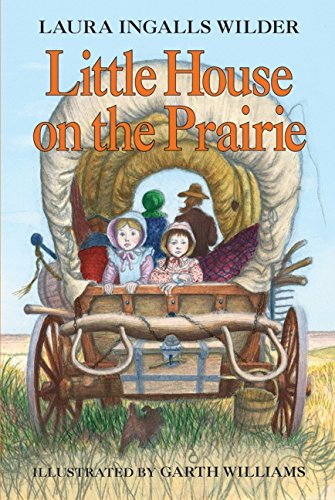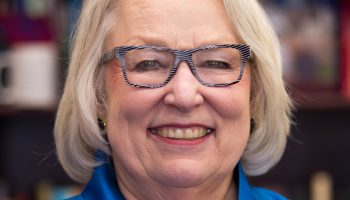Little House on the Prairie by Laura Ingalls Wilder is the selection for the CLSC Young Readers for Week Two.
Caroline Fraser, the author of Prairie Fires: The American Dreams of Laura Ingalls Wilder, the Chautauqua Literary and Scientific Circle selection for Week Two, will be leading a discussion for CLSC Young Readers at 12:30 p.m. Friday, July 6 in the Poetry Makerspace.
 Although there is controversy concerning the fact that the American Library Association has removed Laura Ingalls Wilder’s name from an award they give out because of racist stereotypes in her work, there still are important values to be found in Little House on the Prairie, according to Karen Schiavone.
Although there is controversy concerning the fact that the American Library Association has removed Laura Ingalls Wilder’s name from an award they give out because of racist stereotypes in her work, there still are important values to be found in Little House on the Prairie, according to Karen Schiavone.
Schiavone selected most of the program’s books this year, and believes Little House on the Prairie can provide the Young Readers with “that understanding of the past,” as well as the ALA’s reasons from “stripping Wilder’s name for that award.”
“Maybe those are the exact same reasons we should read this book, so that we have an understanding of that and why it’s not OK any more,” said Schiavone, manager of Special Studies and youth programs.
According to Fraser, having expressions that are offensive or differ from “the way we express things today” is a common issue that exists in all kinds of literature, including Huckleberry Finn by Mark Twain — “one of the great classics of American literature” — and Shakespeare’s works.
Fraser said the Little House books are not only “beautifully written literature,” but “a reflection” of the time of frontier and pioneers.
“The Little House books are one of the few examples that we have of a writer examining attitudes by white settlers toward Indians at that time. And so, certainly there are offensive stereotypes in (Wilder’s) work,” Fraser said. “But there’s also an examination of that period and analysis, if you will, of those attitudes. And so, we still read the books for all kinds of reasons, because they are beautifully written. They contain wonderful characters. They are great adventure stories.”
But there’s more to the books that just that, Fraser said. The books are “important literature about a period,” even though readers need to recognize the racist stereotypes, and realize that the books “just can’t be taught to children as they once were in the 1950s and ’60s, uncritically.”
Fraser said that teachers’ and librarians’ approaches are indeed changing, “by talking to kids about not just the actual history, but talking about the issues.”
Fraser referenced the way in which Native Americans are described in the books and the way other characters reacted to them, as well as several of Garth Williams’ original illustrations of Little House scenes that she thinks wouldn’t be published today.
“These issues need to be brought up and discussed openly in ways that they weren’t in previous decades,” Fraser said. “You can talk to kids about all of these issues while talking about other things that they may appreciate about the book. … I just think that all of these issues need to be brought up and discussed openly in ways that they weren’t in previous decades.”
To Schiavone, learning about the past can also help us “make better decisions going forward.”
“I think it’s important to understand the history so that we can see how we got to where we are now. And that’s important for kids, too,” Schiavone said. “That is why you study history in schools, so that hopefully, we will learn from the past.”
Fraser wants CLSC Young Readers “to appreciate the story of Laura Ingalls Wilder’s life and understand a little bit about how very different times were in the 1870s when the Ingalls’ family was pioneering in Kansas.”
“I think that’s one of the things that kids really appreciate is how extraordinarily hard life was for people before there was access to all the things we have now: electricity, running water, modern forms of transportation and all of that,” she said. “I think it can be very interesting for kids … to sort of try to put themselves in that position.”
Fraser hopes young readers will enjoy Little House on the Prairie as they learn through the story.
“I would hope that kids would just come to an appreciation of a time, very other than our own, very foreign to the way we live now, and just enjoy the story. I mean, it’s a great story.”
-Caroline Fraser, Author, Prairie Fires: The American Dreams of Laura Ingalls Wilder




